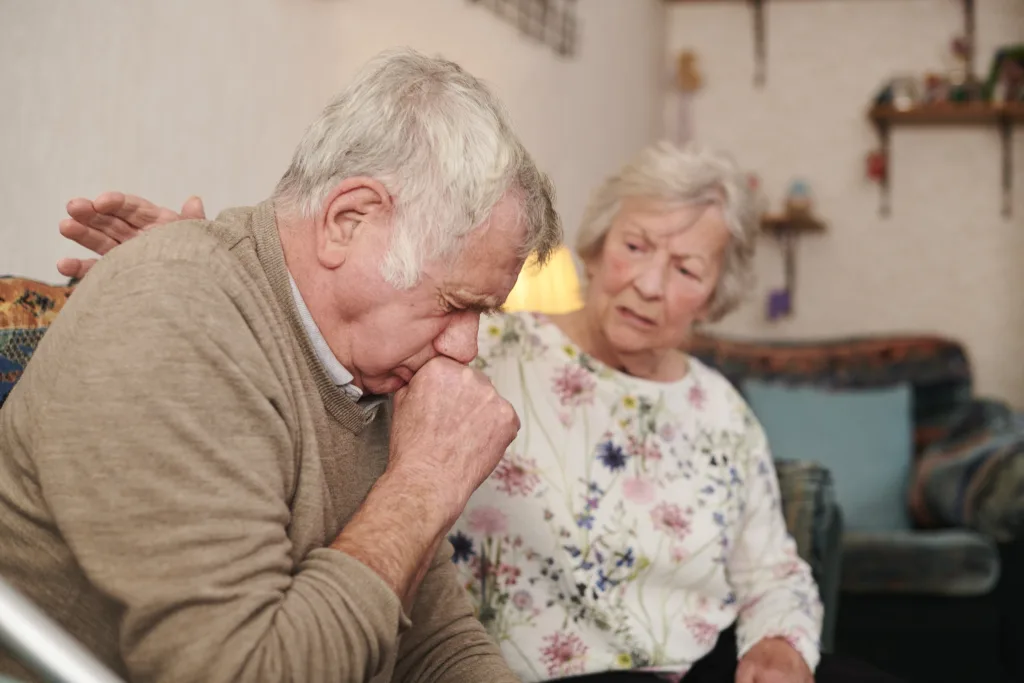When you think about respiratory syncytial virus (RSV), you may associate it with infants and small children. While it typically causes mild illness in healthy kids, it can pose severe risks for medically fragile children.
While younger healthy people may experience mild symptoms while they have RSV, the condition can cause serious health implications for older adults. Additionally, it is possible to get RSV multiple times, even in the same year, because you cannot develop complete immunity to it (American Lung Association). In this article, we will discuss why you should get the RSV vaccine if you are 60 years and older, possible health complications and how to avoid getting RSV.
What is RSV?
RSV is a virus that can affects the nose, throat, lungs and airways, leading to an upper respiratory infection in adults. It is highly contagious and can be dangerous and even fatal for older adults. The American Lung Association estimates that each year up to 160,000 older adults are hospitalized in the United States and about 10,000 older people die from RSV infections. CNN reports that the uptick of older patients being hospitalized for RSV began in 2022 due to lax precautions after the height of the COVID-19 pandemic.
High-risk patients
The Centers for Disease Control and Prevention (CDC) recommends an RSV vaccine for all adults ages 75 years and older and for adults ages 60–74 years who are at increased risk of severe RSV. The CDC sites the following conditions that can increase your risk for severe illness:
- Chronic heart or lung disease
- Weakened immune system
- Certain other medical conditions
- Living in a nursing home
- Frailness
According to the CDC, you should not get an RSV vaccine if you’ve ever had a severe allergic reaction to any component of the vaccine. Additionally, if you have received an RSV vaccine already (including last year), you should not get another vaccine at this time. The CDC is currently evaluating how long protection lasts and may update recommendations, as needed.
Medical complications and RSV
According to the CDC, when an adult gets RSV, they typically have mild cold-like symptoms, but some may develop pneumonia (an infection in the lungs). RSV can be easily dismissed as a cold in people who are healthy can be easily confused with other viruses like the flu and COVID-19. RSV can lead to hospitalization or the worsening of serious conditions such as asthma, chronic obstructive pulmonary disease and heart failure.
Preventing RSV in older people
While RSV is a dangerous and sometimes fatal condition for older adults, the disease can be prevented if you take the proper precautions. WebMD recommends the following practices to prevent older adults from getting infected.
- Get vaccinated. The FDA has approved two RSV vaccines for adults 60 and older.
- Avoid close contact with sick people. This includes touching, kissing or hugging someone who has cold-like symptoms. Don’t drink from the same glass or share eating utensils. If you can’t avoid close contact, think about using a mask or gloves.
- Wash your hands often. Use soap and water for at least 20 seconds. If washing your hands isn’t an option, use an alcohol-based sanitizer to keep germs off fingers and palms.
- Avoid putting your hands on your face. Germs can be spread by touching your nose, eyes and mouth.
- Clean and disinfect surfaces. Regularly cleaning counters, doorknobs, mobile devices or other surfaces you constantly touch is a good practice to help stop illness. RSV can stay on surfaces for several hours. This is true whether someone with RSV coughs or sneezes droplets onto the surfaces or just touches them.
- Cover your mouth when you sneeze or cough. If you are around an older loved one a lot, make sure you are covering your mouth and nose when you cough or sneeze. Use a tissue, then throw it away afterward (and wash your hands). If you feel a sneeze coming on and don’t have a tissue, sneeze into your upper shirt sleeve.
Maxim Healthcare Services has over 150 locations offering home healthcare services across the country with teams dedicated to improving your quality of life. Reach out to your local office to learn more about the services available in your area.

